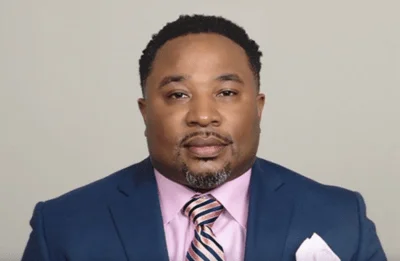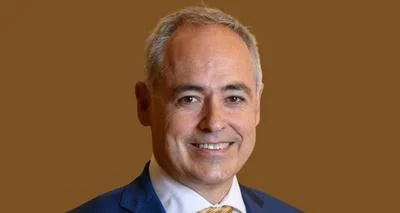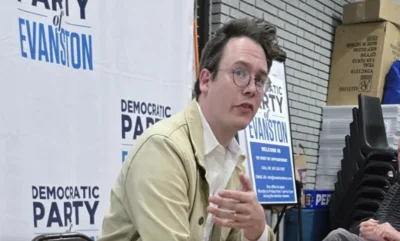Mel Thillens has expressed his support of independently drawn maps for local legislative districts.
Mel Thillens has expressed his support of independently drawn maps for local legislative districts.
As the result of a massive petition campaign, Illinois voters may soon have the opportunity to change the way the state’s legislative districts are drawn.
Under current law, these boundaries are established by the party in control of the governor’s office, the state Senate and the state House, following each decennial census. If neither party controls all three branches, the mapmakers are determined through a lottery drawing.
In Illinois, Democrats have been in charge of the process since 2000. Critics of the system now in place point out that it encourages politicians to draw districts that are stacked with voters from one party, thereby discouraging any serious competition from the opposition party. This situation, they contend, undermines democracy because voters are presented with fewer choices in elections -- which consequently diminishing their chances of accountable and responsive representation.
“Right now, politicians in Illinois choose their voters, and it should be the other way around,” Mel Thillens, Republican Senate candidate for District 28, recently told North Cook News. “Voters should be able to choose their politicians at the ballot box, but the fact of the matter is very few districts have any kind of chance of changing the current legislator, and that’s a shame. We really need to allow for fair maps, independent maps, maps not drawn by the politicians -- that would allow a better chance for challenges to the people that have been sitting there so long and not getting it done for our state.”
But the petition initiative, known as the Independent Map Amendment (IMA), could lead to drastic changes in the way lines will be drawn in the future. If adopted, IMA will result in a referendum this fall that will give voters the choice to either continue under the current system or to place the duties of mapmaking to an independent and bipartisan panel.
House Speaker Mike Madigan has been one of the most highly visible opponents of the IMA, and his chief concern is that the measure would have a negative impact upon minority voters and equal representation in the state. In a memo, he stated that "the so-called 'reforms' in Illinois will devastate the voices of minority community and minority voters," and "what's called the Independent Map Proposal has components which work against established constitutional and statutory requirements on minority representation in redistricting."
“We have very few competitive elections in this state and that’s just plain wrong,” Thillens said. “There are some politicians -- Michael Madigan, for example, was sworn in the year I was born -- I’m 44 years old. He’s spent that entire time amassing power and coming with rules and new tricks to make sure that he can stay in power in this state.”
In the November 2012 election, the first after new districts were drawn in 2010, all 177 seats in the Illinois General Assembly were up for grabs. Of those seats, 101 went uncontested on the ballot. A mere 16 races were competitive and only seven incumbents, less than 4 percent, were defeated. When incumbents have these types of advantages, the incentive for challengers to invest in a campaign is minimized.
“Right now, the maps are drawn using all sorts of high-end software, and (mapmakers) know how to make sure that districts are only represented by one party or another,” Thillens said. “The Democrats use the maps to herd Republicans into as few districts as possible, so that they can then take as many districts as possible, and that’s not right.”
The petition campaign was chaired by former Tribune CEO Dennis Fitzsimons, and was overseen by a diverse, bipartisan board of directors that includes Ruth Greenwood, staff attorney for the Chicago Lawyers' Committee for Civil Rights Under Law; Rev. Byron Brazier of Apostolic Church of God; Latino Policy Forum Executive Director Sylvia Puente; and former Playboy Enterprises CEO Christie Hefner, among others.
“It’s important that we get somebody into the General Assembly who is willing to do what needs to be done to get the state going the right way again,” Thillens said. “It’s about time that we end what’s going on with these politicians taking advantage of us in the state of Illinois.”




 Alerts Sign-up
Alerts Sign-up